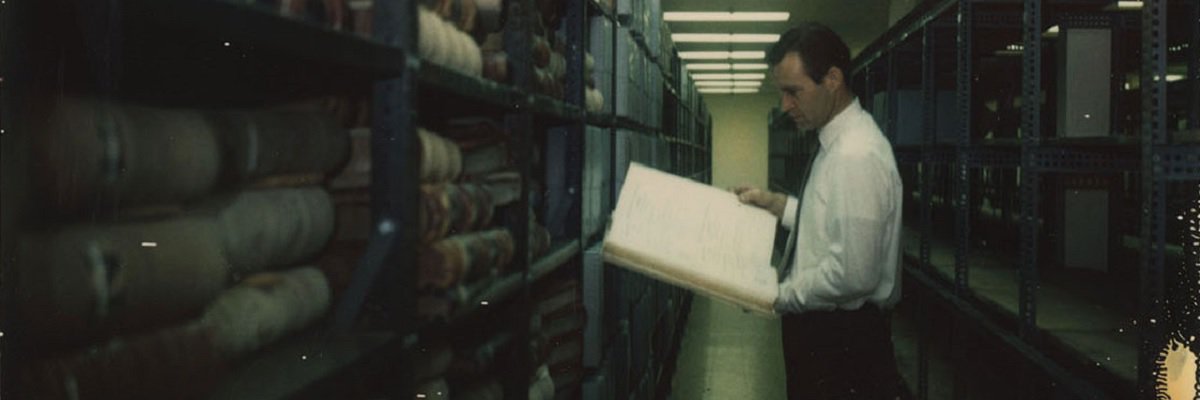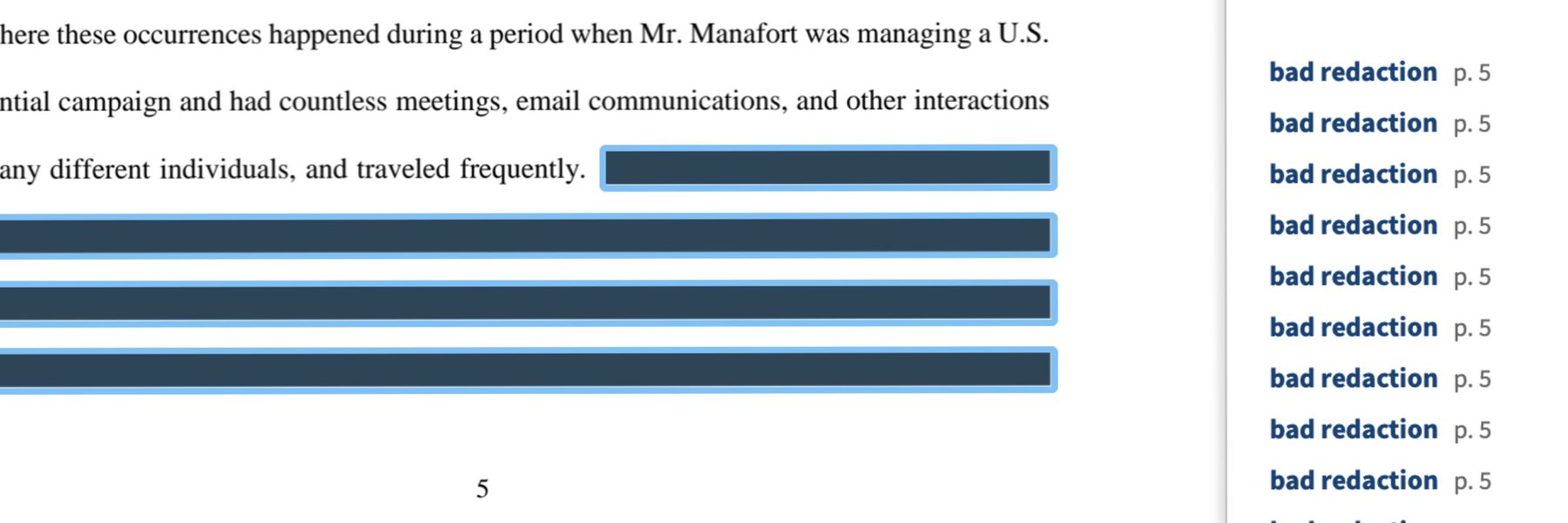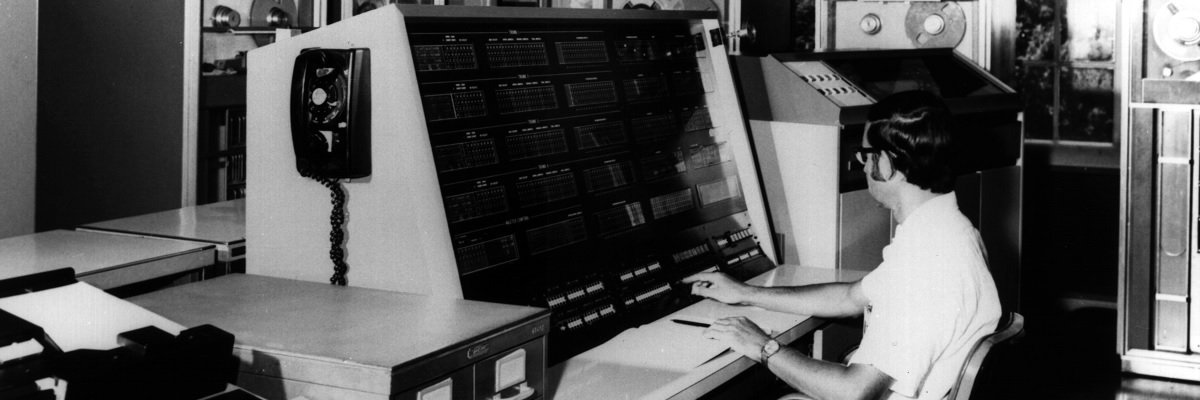Often times people ask to upload their existing FOIA requests to MuckRock or want to share an interesting cache of documents through the site. We’re always excited to see more people using public records, so we wanted to explain why we don’t accept these kinds of offers and suggest some alternatives.
One of our goals when we started MuckRock was to get more people filing requests, whether they used us directly or were just inspired by some cool FOIA examples.
But we also wanted to build a repository where, no matter who filed the request, people could see the process that released the information, could trust that they came from a verified source, and could then build on that work in interesting ways.
That’s why when you file a request through MuckRock, the documents come back through our office or our email servers so that we can digitize, upload, and server up the documents directly, verifying the material as it comes in.
It was also important to us that we build a tool that’s useful and open to everyone who is interested in better understanding government. That meant that people could sign up without vetting, and whether you were a Pulitzer Prize-winning journalist or just a curious citizen, you could still use our platform to share the results of your request and people could trust our process.
We’ve continued to refine that process over the years and it’s not perfect (yet), but our goal is to keep things as consistent as possible.
So anytime you find interesting documents on MuckRock, you can see who put them there, how long it took to get them, who originally requested, and more, all in a standard way.
Read the story behind the CryptoKids request here
Because we can’t vet documents uploaded by users directly, we decided early on to not mix requests submitted outside of our system into our database, as interesting and important as a lot of those requests are (After all, less than 2% of all records requests are filed through MuckRock).
But we still love to highlight great FOIA ideas, tips, and strategies, no matter where they come from, so we also have other ways to contribute your FOIA expertise so everyone can benefit.
Deja Vu all over again
One option: Filing a fresh request for a copy of the same documents. Since the search was performed and the materials are already processed, these are usually very quick to get fulfilled by the agency.
Refiling might also be a good time for you to get a new look at the behind-the-scenes story of your original request. You can ask for a copy of processing notes as well as all the resulting documents from your initial request (here’s an example, though be sure to ask for them to release the original files as well).
FOIA Machine and DocumentCloud
If you want to share (or just track) your FOIA requests filed outside of MuckRock, you should also check out FOIA Machine, another site we run. Unlike MuckRock, FOIA Machine doesn’t automate filing or following up with agencies, but it lets you upload your request information, provides access to a database of FOIA contacts, and gives you complete control of what’s on the page.
Currently, FOIA Machine doesn’t have a searchable public database of requests, but you can get a shareable link to your request and upload responsive documents to the page:
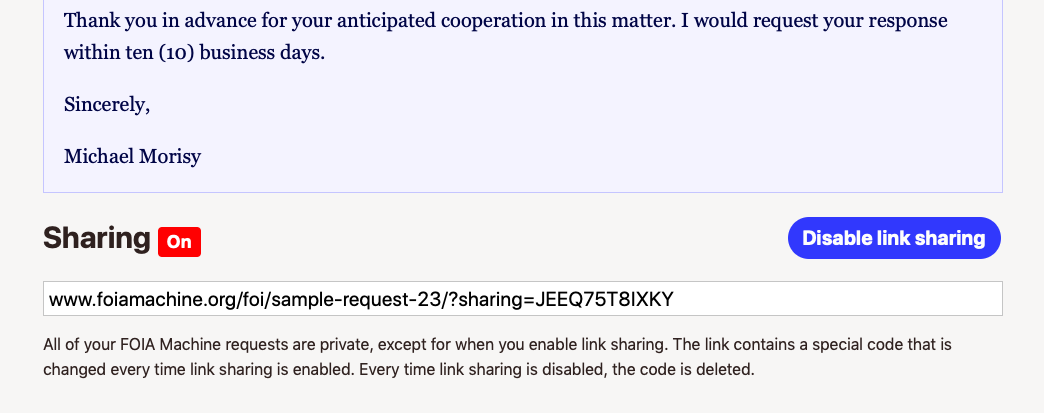
If you work in a newsroom, we also encourage you to share your FOIA wins on DocumentCloud, which lets you upload PDFs and other documents into its shared repository of almost a hundred million pages of primary source materials.
DocumentCloud is also a great research repository and place to get good public records ideas, so even if you do file through MuckRock, it’s worth searching through.
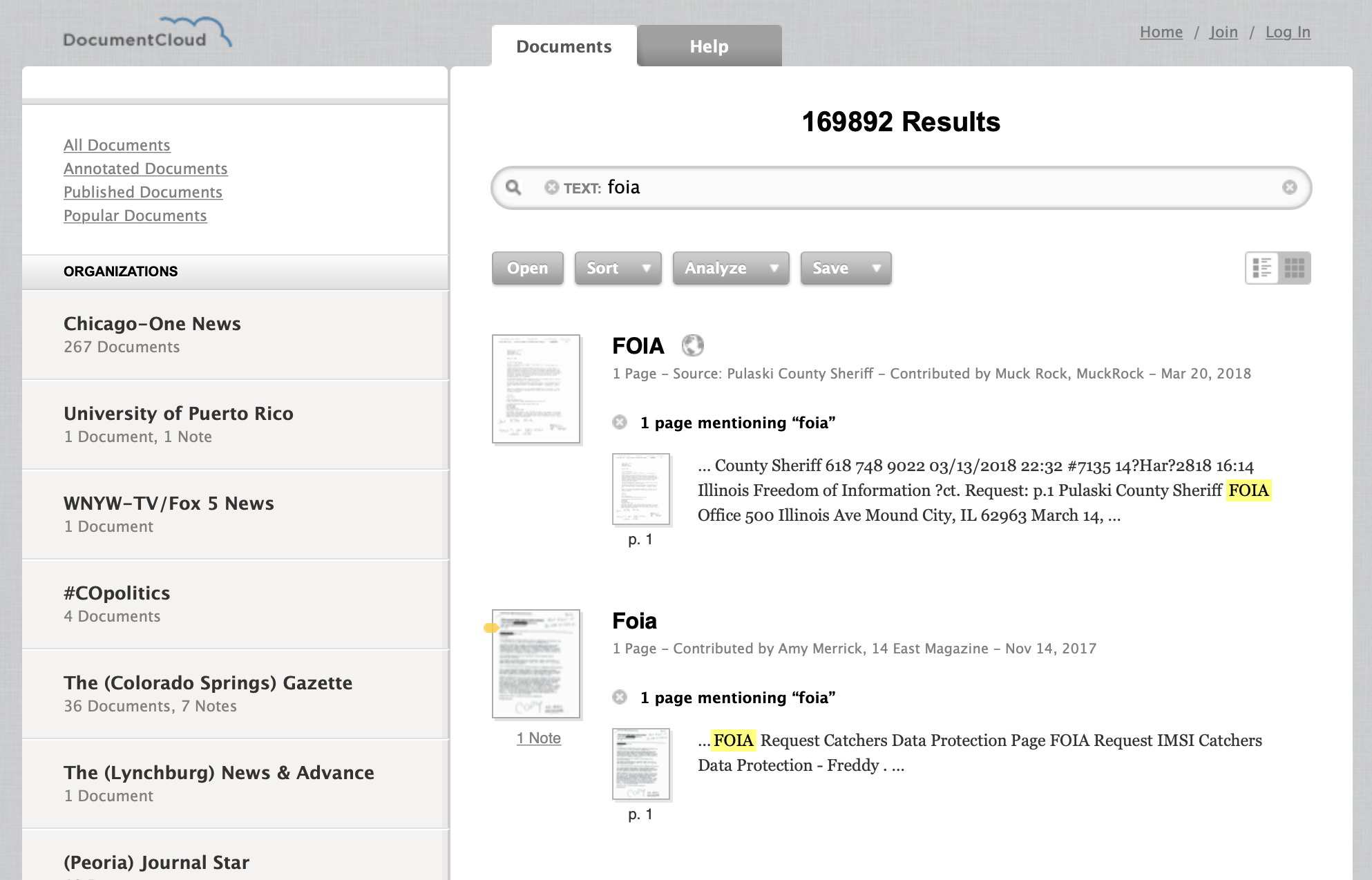
Note that currently only vetted newsrooms can get DocumentCloud accounts. If you’re a reporter, you should see if your newsroom already has an account, and if not apply to join. Later this summer, we’ll be opening up DocumentCloud accounts to everyone.
██████ loves company: Other ways to share your FOIA requests, war stories, and victories
However you file your requests, we still like to track what works for getting important documents into the hands of the public. You can share winning FOIA appeal examples here, which then get added to our ever-growing database of exemptions and sample public records appeals.
We’re also looking to highlight clever FOIA ideas and public records-based news stories in our upcoming request ideas database.
Finally, whether you file through MuckRock, FOIA Machine, or just on your own, there’s lots of ways to commiserate, celebrate, and learn ways to become a better request. We love to hear about your FOIA victories via email or on social media (Twitter and Facebook are where we’re most active). All are also welcome to come join us on the FOIA Slack.
Image via U.S. National Archives Flickr
